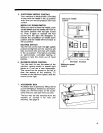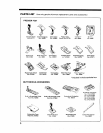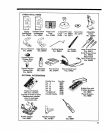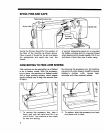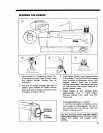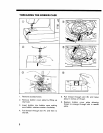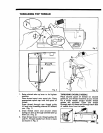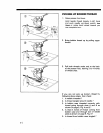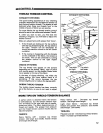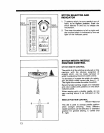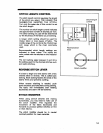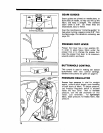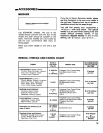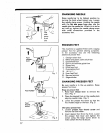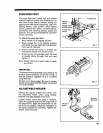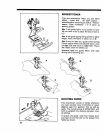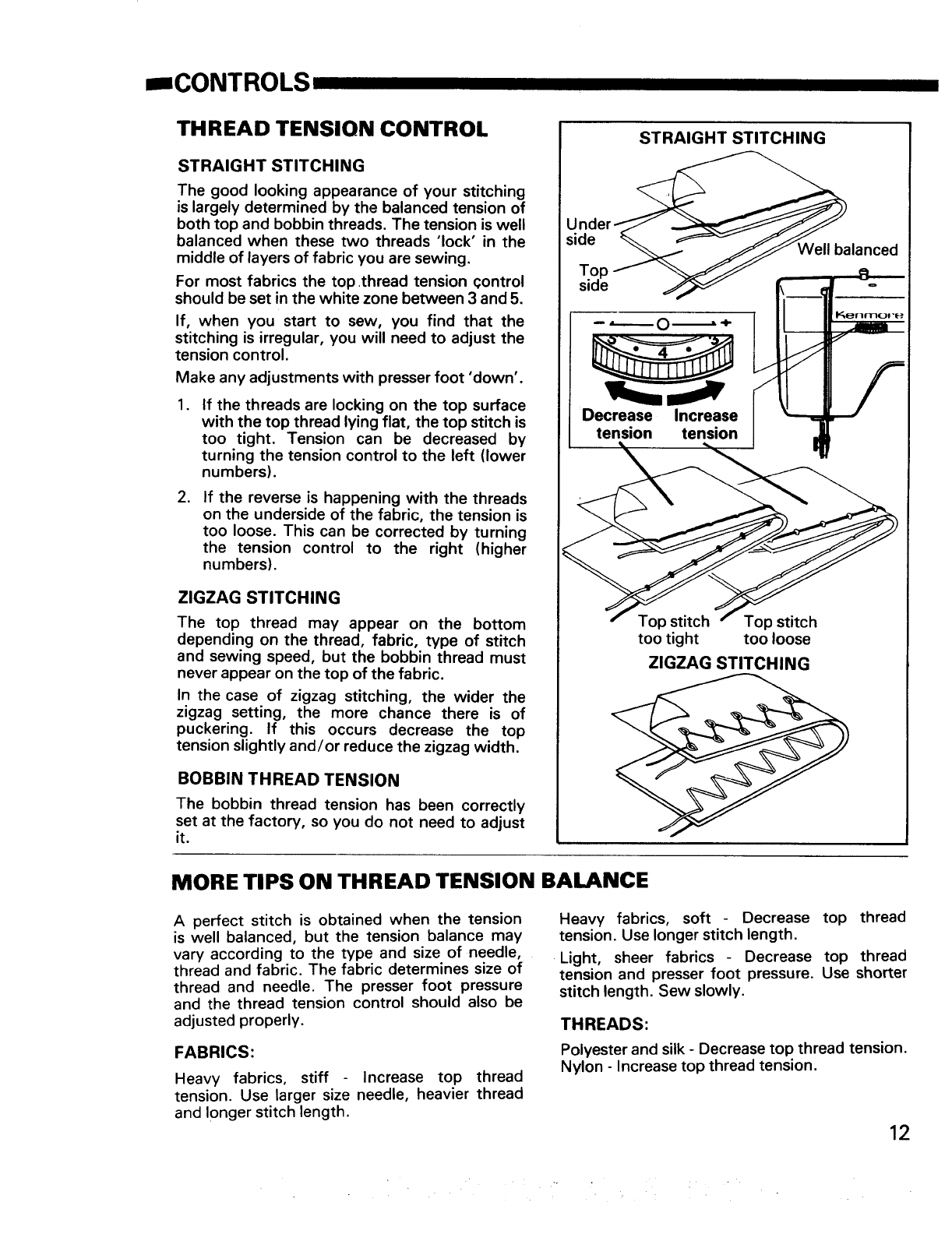
!CONTROLS
THREAD TENSION CONTROL
STRAIGHT STITCHING
The good looking appearance of your stitching
is largely determined by the balanced tension of
both top and bobbin threads. The tension is well
balanced when these two threads 'lock' in the
middle of layers of fabric you are sewing.
For most fabrics the top.thread tension (;ontrol
should be set in the white zone between 3 and 5.
If, when you start to sew, you find that the
stitching is irregular, you will need to adjust the
tension control.
Make any adjustments with presser foot 'down'.
.
If the threads are locking on the top surface
with the top thread lying flat, the top stitch is
too tight. Tension can be decreased by
turning the tension control to the left (lower
numbers).
.
If the reverse is happening with the threads
on the underside of the fabric, the tension is
too loose. This can be corrected by turning
the tension control to the right (higher
numbers).
ZIGZAG STITCHING
The top thread may appear on the bottom
depending on the thread, fabric, type of stitch
and sewing speed, but the bobbin thread must
never appear on the top of the fabric.
In the case of zigzag stitching, the wider the
zigzag setting, the more chance there is of
puckering. If this occurs decrease the top
tension slightly and/or reduce the zigzag width.
BOBBIN THREAD TENSION
The bobbin thread tension has been correctly
set at the factory, so you do not need to adjust
it.
Under
side
Top
side
Decrease
tension
STRAIGHT STITCHING
Nell balanced
Increase -----=
tension
o
Kenrnol'e
Top stitch Top stitch
too tight too loose
ZIGZAG STITCHING
MORE TIPS ON THREAD TENSION BALANCE
A perfect stitch is obtained when the tension
is well balanced, but the tension balance may
vary according to the type and size of needle,
thread and fabric. The fabric determines size of
thread and needle. The presser foot pressure
and the thread tension control should also be
adjusted properly.
FABRICS:
Heavy fabrics, stiff Increase top thread
tension. Use larger size needle, heavier thread
and longer stitch length.
Heavy fabrics, soft- Decrease top thread
tension. Use longer stitch length.
Light, sheer fabrics - Decrease top thread
tension and presser foot pressure. Use shorter
stitch length. Sew slowly.
THREADS:
Polyester and silk - Decrease top thread tension.
Nylon - Increase top thread tension,
12



